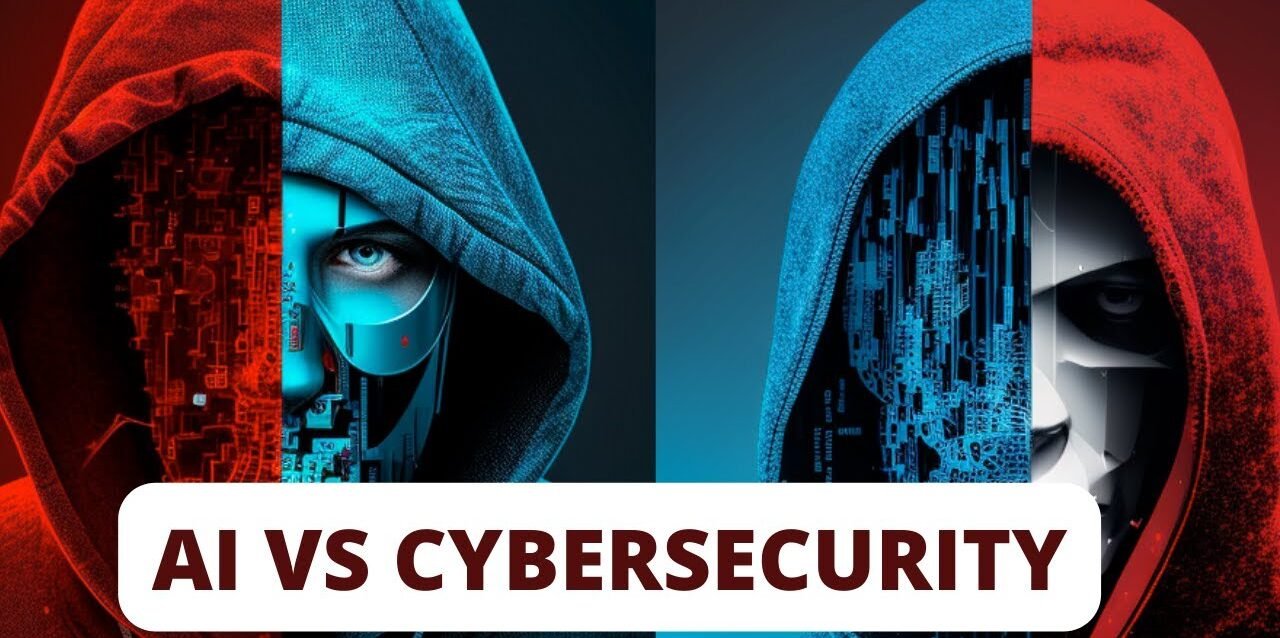If you’re wondering which is easy cybersecurity or artificial intelligence, here’s the direct answer: cybersecurity is generally more accessible for beginners, while artificial intelligence (AI) demands stronger foundations in math and programming. But the right path depends on your long-term career goals, current skill set, and interests.
This 2025 guide compares both domains—difficulty, learning curve, required skills, salaries, and future outlook—to help you make an informed decision.
Table of contents
Growth of Cybersecurity and Artificial Intelligence
Since 2017, AI adoption has doubled across industries such as healthcare, finance, marketing, and manufacturing. Simultaneously, cybersecurity has become essential as cyberattacks now cost over $10 trillion annually (source: Cybersecurity Ventures).
Interestingly, AI is now a key tool in cybersecurity—used for threat detection, anomaly spotting, and defense automation. The two fields are converging fast.
Which Field Is Easier to Learn?
Cybersecurity: A Smoother Learning Curve
✅ Fewer advanced math prerequisites
✅ Several entry points: analyst, pentester, cloud security, SOC, etc.
✅ Recognized short certifications (e.g., CompTIA Security+, CEH, CISSP)
✅ Progressive learning path: from power user to expert
Artificial Intelligence: More Technical Requirements
🔶 Strong knowledge of linear algebra, statistics, matrix calculus
🔶 Mandatory Python, frameworks (TensorFlow, PyTorch), data handling (NumPy, pandas)
🔶 Typically requires a master’s degree or intensive bootcamp
🔶 Less accessible without STEM background
👉 Verdict: Cybersecurity is easier to get into for beginners in 2025.
Top Certifications and Learning Paths
Cybersecurity Certifications
| Certification | Duration | Recognition |
|---|---|---|
| CompTIA Security+ | 2–3 months | International |
| Certified Ethical Hacker | 3–6 months | Global standard |
| ISO/IEC 27001 Lead Impl. | 3–4 months | Highly sought |
| CISSP | 6–12 months | Advanced level |
You can enter the field with a 2-year degree and practical certs.
AI Certifications and Degrees
| Program | Duration | Focus |
| ML by Stanford (Coursera) | 11 weeks | General ML |
| DeepLearning.AI Specialization | 3–6 months | Neural networks |
| MSc in AI / Data Science | 1–2 years | Academic / R&D |
| TensorFlow Developer Cert. | 1–3 months | Tool-specific skills |
AI roles often require a minimum of bachelor’s/master’s level education.
Skills You Need
For Cybersecurity:
- Risk analysis
- Vulnerability management
- Networking protocols (TCP/IP, DNS, VPN)
- Cloud security (AWS, Azure)
- Python or Bash scripting
- SIEM tools (Splunk, QRadar)
For Artificial Intelligence:
- Statistics, probability theory
- Python (pandas, NumPy, matplotlib)
- Neural networks and deep learning
- Natural Language Processing (NLP)
- ML frameworks: TensorFlow, PyTorch
- Distributed computing (Spark, Hadoop)
Average Salaries in 2025
AI Salaries (USA)
| Role | Avg. Annual Salary |
| Machine Learning Engineer | $158,676 |
| Data Scientist | $117,623 |
| NLP Engineer | $111,000 |
| AI Researcher | $123,279 |
| AI Software Engineer | $88,896 |
Cybersecurity Salaries (USA)
| Role | Avg. Annual Salary |
| Security Analyst | $87,647 |
| Cybersecurity Manager | $108,126 |
| Pentester / Ethical Hacker | $123,476 |
| Risk Manager | $93,217 |
| Cloud Security Consultant | $110,039 |
Career Match by Profile
| Profile | Recommended Path |
| Beginner with no tech background | Cybersecurity |
| Math or data science background | Artificial Intelligence |
| High long-term salary ambition | Artificial Intelligence |
| Enterprise work preference | Both |
| Passion for hacking and digital forensics | Cybersecurity |
| Interest in algorithms and data models | Artificial Intelligence |
Intersection: AI in Cybersecurity
The two domains are merging. Example applications:
- AI models for intrusion detection (IDS/IPS)
- NLP for malware analysis in phishing emails
- ML for real-time behavior-based threat detection
Hybrid AI+Cybersecurity profiles are highly sought-after in 2025, especially in large companies and government sectors.
Future Outlook: Convergence, Not Competition
- Cybersecurity: Continuous growth, evolving threats, new specializations
- AI: Explosive expansion in healthcare, defense, fintech, and industry
- AI in security: Emerging field (e.g. adversarial ML, model hardening)
Both are complementary. The security of AI systems is now a key concern.
Final Verdict: Cybersecurity or AI?
This isn’t just about which is easier—it’s a career strategy.
- Want a quick entry into tech? Start with cybersecurity
- Willing to invest years in advanced tech? Go for AI
- Best option? Master both gradually. Start with cybersecurity, then pivot to AI once your foundation is solid.
Both paths are in demand and increasingly interconnected.
FAQ – Cybersecurity vs Artificial Intelligence
Q: Is cybersecurity easier than AI?
Yes, especially for beginners with no advanced math or coding skills.
Q: Do social workers earn more than cybersecurity professionals?
No. Cybersecurity roles typically offer significantly higher salaries.
Q: Will AI replace cybersecurity jobs?
No. AI supports human decisions but doesn’t replace critical thinking and context analysis.
Q: Which certification should I choose?
Cybersecurity: CEH, CISSP, Security+
AI: TensorFlow Developer, DeepLearning.AI, Microsoft AI Fundamentals
Q: Can I learn both fields?
Yes, and hybrid “AI for Cybersecurity” roles are in high demand for 2025.




